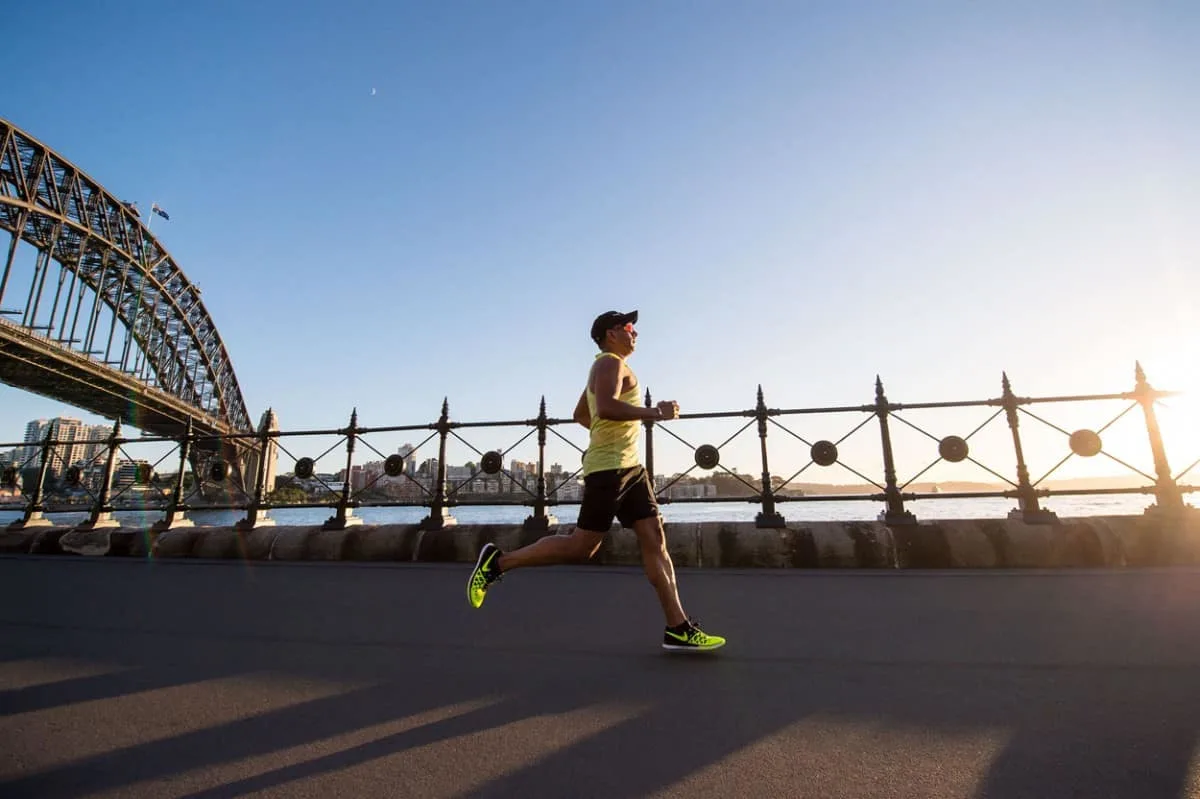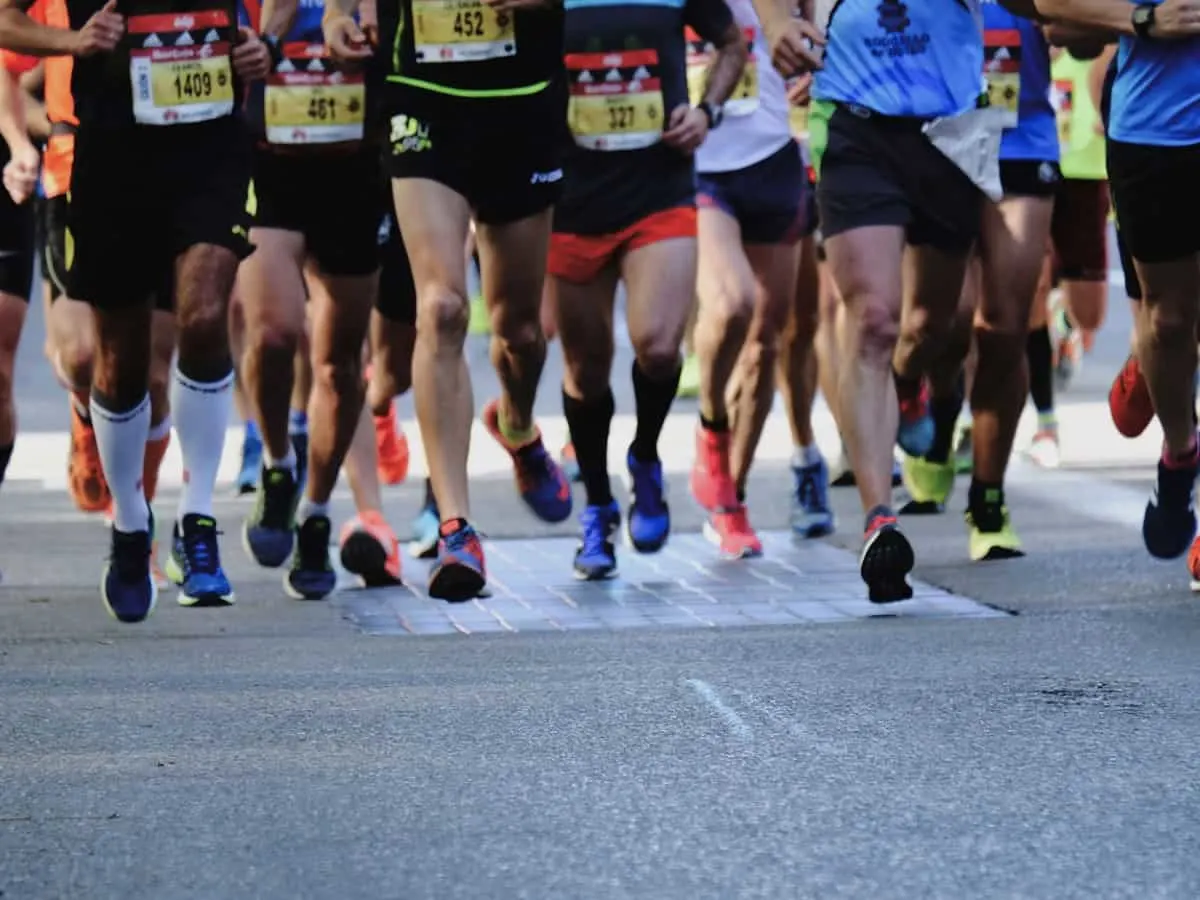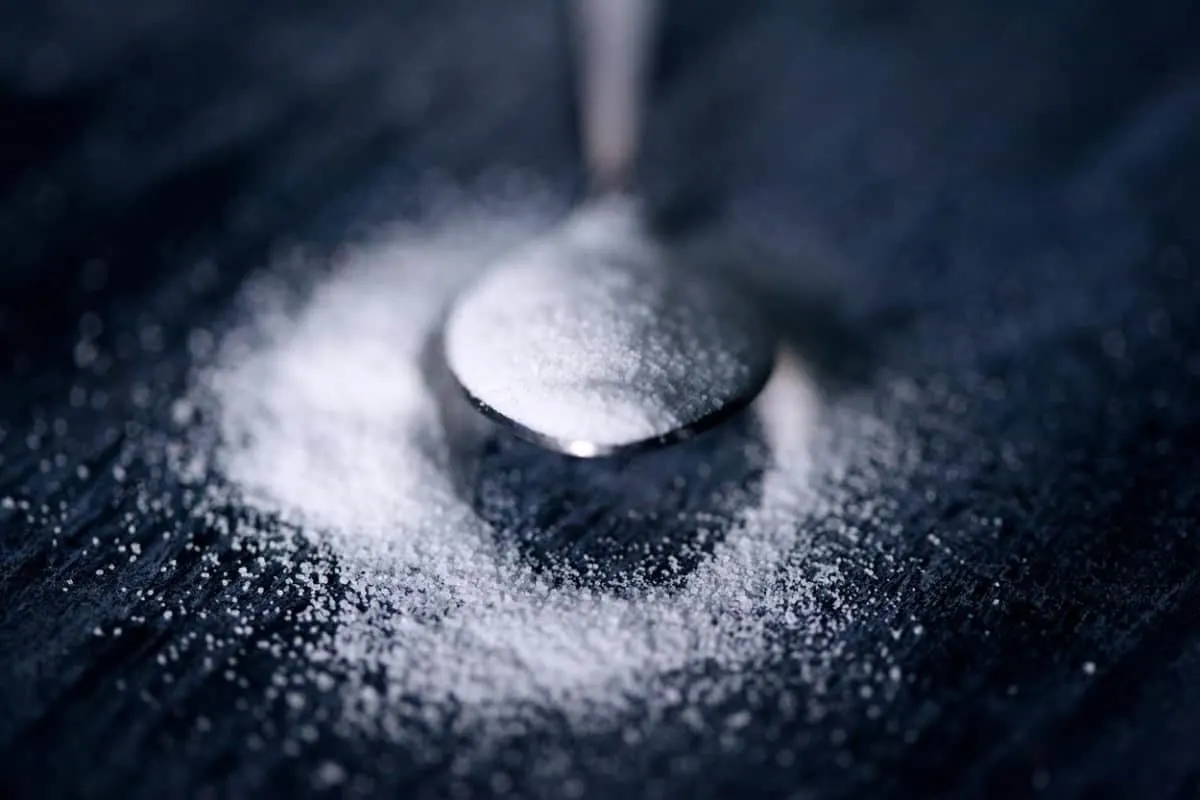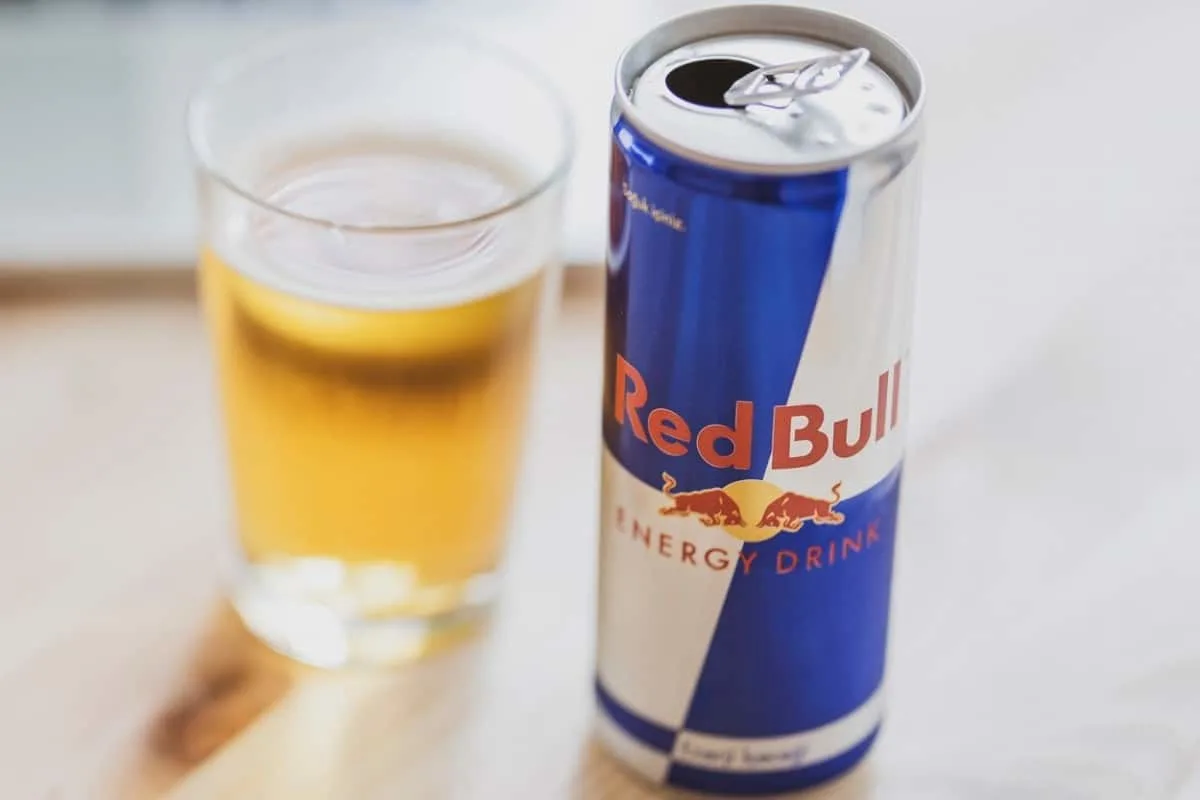Whether you’re a sprinter, power walker, marathoner, or jogger, having enough energy to pound the pavement in record time will usually be your number one priority.
If you’re an amateur runner, a banana smoothie will usually do the trick, but if you’re a professional athlete, you may need something stronger and long-lasting.

So if running is your passion, here are some options that may help you last longer on the track and help you avoid the post-run soreness: Red Bull, Monster, and Game Fuel.
Read on if you want to know more about how energy drinks help or hinder running and what ingredients you need to look for when shopping for an energy drink to fulfill all your running needs.
Contents
What are the benefits of running
Running offers a wealth of health benefits. Running every day can reduce body mass, lower body fat ratio, reduce resting heart rate, increase metabolism and improve stamina.

Running can also improve your sleep and mental health, reduce your risk of developing certain types of cancers and cardiovascular diseases, extend your lifespan, and also improve anxiety and depression.
However, if you are new to running, you should heed some precautions. Experts agree that you should always warm-up before a run, and always start with low to moderate intensity running.
You should also be careful not to overexert yourself as runners often suffer from back and groin injuries as well as injuries of the lower leg.
Do Energy Drinks Help With Running?
While running may not be that much different from traditional forms of exercise like weight training, calisthenics, and aerobics, there are a few considerations that you need to take into account.
Running, for one, works the legs muscles much more than any other body part. It also burns way more calories than standard cardio, although a lot of people avoid it because it tends to be a little hard on the joints and makes you more prone to ankle sprains.

However, since running is just another form of physical activity, energy drinks can definitely help in one way or another. This is of course by virtue of caffeine, and other energy-boosting ingredients and supplements that may be added to the formula.
While some people believe that caffeine causes fluid loss due to its mild diuretic effect that expels excess sodium in your blood, there is actually no scientific evidence to suggest that it can cause extreme dehydration.
So caffeine as an energy booster is totally safe for running and won’t cause you any adverse effects as long as you don’t take too much of it in a single serving.
However, aside from providing energy, there are other things that energy drinks can help you with if you’re an avid runner.
Are Energy Drinks Important For Running?
When you run, such as in a marathon, for example, you experience a higher amount of fluid loss, much more so than if you did weight training or light cardio.
Excessive sweating during running causes you to lose a lot of the electrolytes in your body like sodium and potassium, which may cause extreme thirst and dehydration.
Unfortunately, plain water, believe it or not, is terrible of runners, because it may cause what is known as water intoxication or hyponatremia. Excess intake of water during running, or after a substantial amount of fluid loss can lead to a variety of symptoms such as:
- headaches
- nausea
- dizziness
- seizures
- heart attack
- death
A good energy drink for running, therefore, should contain some important ingredients that not only prevent fluid loss but also reduce your chances of experiencing muscle cramps, which are often caused by dehydration and insufficient carbohydrate intake.
Ingredients to Look For In An Energy Drink For Running
The best energy drinks for running should ideally contain a blend of electrolytes, vitamins, minerals, carbohydrates, and antioxidants.
Excessive sweating as a result of sustained running can cause you to lose electrolytes such as potassium and sodium.
If these compounds are not replenished, you will feel exhausted much faster, making it impossible to go any further, even with caffeine running through your veins. Carbohydrates are also important to replenish your glycogen levels, which when depleted will make the muscles become weak and tire easily.
Electrolytes
Electrolytes are an umbrella term used to refer to particles that carry a positive or negative electric charge, but in essence, they are minerals that help regulate the metabolic processes of the human body.
They are essential for maintaining correct water equilibrium, and ensuring you remain hydrated.

If you are someone who leads an active lifestyle, like running, then you tend to experience a greater loss of electrolytes through excessive sweating. Fewer electrolytes in the body mean that your cells can’t hold onto water as efficiently as they normally would, leading to higher chances of dehydration.
Examples of electrolytes include sodium, potassium, chloride, calcium, and magnesium. These are some ingredients that you should be looking for in an energy drink for running.
Carbohydrates
Carbohydrates get a bad rep for apparently being responsible for causing weight gain, but they are actually an important source of energy for us.
Fructose and maltodextrin are good examples of fast-absorbing carbohydrates that can replenish your energy quickly without increasing your sugar levels.
Carbs are important for any kind of endurance sports like running because they supply energy to the muscles, preventing you from getting knackered out just after a few kilometers.

Artificial sweeteners unfortunately won’t cut it this time because sugar substitutes like sucralose and stevia are zero-calorie compounds that do not supply any carbohydrates and thus won’t help replenish your glycogen levels.
So for once, sugar may actually be the winner in this situation.
Essential vitamins
Essential vitamins are important for your body because it ensures that you stay healthy and resistant to certain diseases.
An ideal energy drink for running should contain vitamins C, D3, and B12. These vitamins help reduce muscle soreness and fatigue, which can affect how long and how fast you can run.
When Should You Drink Energy Drinks For Running?
So should you drink energy drinks before, during, or after running? Ideally, all three.
You should ideally prep an hour before a run with a carbohydrate-rich, electrolyte-infused energy drink to give your body the time it needs to deliver all the nutrients to your cells and muscles.
It is also important that you hydrate during your workout also, preferably 20-40 ounces of energy drink every hour to prevent your body from becoming dehydrated, and to keep you energized throughout the session.
You should also drink after you finish your run so that any lost electrolytes can be quickly replenished before you experience all the nasty side effects of fluid loss.
Is it OK to drink energy drinks while running?
Staying hydrated during running is crucial for maintaining performance and avoiding negative side effects. If you choose to drink an energy drink during running, be sure to also drink plenty of water or electrolyte-rich drinks to support hydration.
While drinking energy drinks during running can help provide a temporary energy boost, it’s important to be mindful of the potential negative effects and consider whether it’s the best choice for your health and performance.
Do energy drinks help you run longer?
Energy drinks can provide a temporary boost in energy and alertness, which may help you run longer by delaying fatigue and improving endurance. However, it’s important to keep in mind that the effects of energy drinks are usually short-lived, and consuming too much caffeine or other stimulants can lead to negative side effects such as dehydration, jitters, and increased heart rate.
Additionally, it’s important to consider the overall nutritional value of energy drinks, which are often high in sugar and other additives that may not provide long-term benefits for athletic performance and health.
What’s best to drink before a run?
Before a run, it’s important to hydrate and fuel your body with the right nutrients to support your performance and prevent dehydration and fatigue. Drinking water before a run is essential for staying hydrated and supporting overall performance.
Aim to drink at least 16-20 ounces of water 2-3 hours before your run, and another 8-10 ounces 10-15 minutes before you start. Furthermore, Electrolyte drinks, such as sports drinks, can help replenish electrolytes lost through sweat and support hydration during exercise. Look for drinks that are low in sugar and high in electrolytes, such as potassium and sodium.
Best Energy Drinks for Running
The following are some suggestions for some good energy drinks that may assist you during your run to ensure that you are fully hydrated, and sufficiently energized.
This list is by no means exhaustive, so feel free to experiment with other brands, just make sure that it has some sugar in it, or maltodextrin because otherwise, your body won’t be able to last long without getting tired.
Red Bull

One 8.4 fl.oz of Red Bull contains 110 calories, 28g of carbs, 80mg of caffeine, and 105mg of sodium. It contains taurine as a supplement, and vitamins B3, B5 and B12. Its main source of carbohydrates is glucose and fructose.
You can generally get a Red Bull at just about any convenience store you find yourself in, but if you really want to know how to get your hands on the cheapest deals, have a look at my Where To Buy Red Bull article for a general guide on where to get the best deals on this classic energy drink.
Monster
One 16 fl.oz can of Monster contains 210 calories, 54g of carbs, 160mg of caffeine, and 370mg of sodium. It also contains added carbohydrates like maltodextrin and extra energy boosters like guarana and ginseng. Supplements include L-carnitine, L-tartrate, glucuronolactone, taurine, and vitamins B2, B3, B6, and B12.
One can costs around $2, which makes it a fairly cheap option if you’re looking for a quick sugar rush and not much else.
If you like to know more about Monster Energy and how well it might be suited to you, check out my Monster Energy review article for the low-down on this particular energy drink.
Game Fuel
One 16 fl. oz. can contain 90 calories, 24g of carbohydrates, 90mg of caffeine, and 90mg of sodium. It also contains added energy boosters like ginseng and yerba mate. Supplements include L-theanine and vitamins A, B6, B5, and niacinamide. Its main source of carbohydrates is high fructose corn syrup.
One 12-pack retails at around $23.
Here are some other brands recommendations as well as some running tips that you may be interested in if you’re a runner and looking to spice up your smorgasbord:
Conclusion
For some, running may not be that much different from other forms of exercise, but experts agree that it is indeed different from other forms of physical activity like weight training and aerobics.
Running requires a lot of energy, and that means regular runners may actually stand to benefit from a carb-rich energy drink than someone who may be more into weight training or cardio.
Running every day can provide a wealth of health benefits like reducing body fat, maintain heart health, enhancing stamina, and improving metabolism.
However, it is important that you monitor your fluid intake, especially if you are training for a sports event like a marathon, which can demand a lot from you, physically.
Fluid loss is not uncommon in marathoners, so it’s almost recommended that you supplement with electrolytes and carbohydrates before a race.
